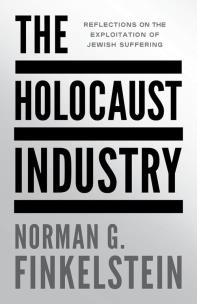- Regulamin
- Koszty dostawy
- Kontakt
- Dziś w ofercie 235 665 produktów
KSIĄŻKI
- Albumy
- Beletrystyka
- Biografie
- Dla dzieci i młodzieży
- Edukacja
- Ekonomia i biznes
- Ezoteryka
- Historia
- Informatyka
- Kalendarze
- Komiksy
- Kryminał i sensacja
- Kultura i sztuka
- Literatura faktu
- Literatura kobieca
- Literatura piękna
- Medycyna
- Nauka języków obcych
- Nauki humanistyczne
- Nauki przyrodnicze
- Nauki ścisłe
- Podręczniki
- Poradniki
- Prawo i administracja
- Przewodniki i podróże
- Psychologia
- Religia
- Sport
- Technika
- Zdrowie i uroda
ZABAWKI
- Artykuły dla niemowląt
- Bączki
- Bujaki i skoczki
- Ciągnij / pchaj
- Dla niemowlaka
- Grzechotki i gryzaki
- Karuzele i pozytywki
- Maty i centra zabaw
- Projektory i lampki
- Sortery i piramidki
- Zabawki
- Edukacyjne i kreatywne
- Figurki
- Klocki
- Lalki
- Pojazdy
- Pluszaki i maskotki
- Sport i rekreacja
- Zabawa w dom
- Zabawki drewniane
- Puzzle
- Do 200 elementów
- 201-500 elementów
- 501-1000 elementów
- Ponad 1000 elementów
- Puzzle 3D
ART. PAP
- Artykuły biurowe
- Artykuły piśmiennicze
- Bloczki i kartki samoprzylepne
- Dziurkacze
- Kalkulatory
- Nożyczki i nożyki
- Skoroszyty
- Teczki
- Wizytowniki
- Zszywacze
- Artykuły szkolne
- Akcesoria szkolne
- Modelowanie
- Notatniki i zeszyty
- Piórniki
- Plecaki i torby
- Pojemniki na śniadanie
- Pomoce naukowe
- Przybory matematyczne
- Przybory rysunkowe
- Upominki i gadżety
- Akcesoria do książek
- Artykuły balowe
- Breloki i zawieszki
- Drobiazgi, różności
- Kubki
- Oferta Świąteczna
- Papeteria, kartki i naklejki
- Skarpetki Many Mornings
- Upominki
GRY
MULTIMEDIA
- Audiobooki
- Beletrystyka
- Biografie i wspomnienia
- Dla dzieci i młodzieży
- Fantastyka
- Filozofia i religia
- Historia
- Literatura faktu i reportaż
- Poradniki
- Sensacja i kryminał
- Filmy DVD/BD
- Animowane
- Biograficzne
- Fantasy
- Horrory
- Komedie
- Romanse
- Science Fiction
- Sensacyjne / kino akcji
- Thrillery
- Muzyka CD
- Alternatywna
- Blues
- Dla dzieci
- Jazz
- Klasyczna
- Piosenka aktorska i poetycka
- Pop
- Rock
- Świąteczna i kolędy
- Akcesoria GSM
- Głośniki
- Kable i adaptery
- Klawiatury
- Myszy
- Słuchawki
PROMOCJE
ZDROWIE
LEGO

The Holocaust Industry
Autor: Finkelstein Norman G.
Wydawca:
Verso
ISBN:
9781804297216
EAN:
9781804297216
oprawa:
Miękka
format:
198x128x18mm
język:
angielski
liczba stron:
286
rok wydania:
2024
(0) Sprawdź recenzje
Opis produktu
Zasady bezpieczeństwa
This iconoclastic study was one of the most widely debated books of 2000. Finkelstein indicts with both vigor and honesty those who exploit the tragedy of the Holocaust for their own personal political and financial gain.
This new edition includes updated material discussing the initial reception to the book's publication. In an iconoclastic and controversial new study, Norman G. Finkelstein moves from an interrogation of the place the Holocaust has come to occupy in American culture to a disturbing examination of recent Holocaust compensation agreements. It was not until the Arab-Israeli War of 1967, when Israel's evident strength brought it into line with US foreign policy, that memory of the Holocaust began to acquire the exceptional prominence it enjoys today.
Leaders of America's Jewish community were delighted that Israel was now deemed a major strategic asset and, Finkelstein contends, exploited the Holocaust to enhance this newfound status. Their subsequent interpretations of the tragedy are often at variance with actual historical events and are employed to deflect any criticism of Israel and its supporters.
Recalling Holocaust fraudsters such as Jerzy Kosinski and Binjamin Wilkomirski, as well as the demagogic constructions of writers like Daniel Goldhagen, Finkelstein contends that the main danger posed to the memory of Nazism's victims comes not from the distortions of Holocaust deniers but from prominent, self-proclaimed guardians of Holocaust memory.
Drawing on a wealth of untapped sources, he exposes the double shakedown of European countries as well as legitimate Jewish claimants, and concludes that the Holocaust industry has become an outright extortion racket. Thoroughly researched and closely argued, The Holocaust Industry is all the more disturbing and powerful because the issues it deals with are so rarely discussed.
CENA:
43,41
zł
Cena detaliczna:
65,00 zł
33%
rabatu
Najniższa cena z ostatnich 30 dni: 43,54 zł
WYSYŁKA: 48h
Dodaj do koszyka
Dodaj do schowka
Uwaga!!!
Ten produkt jest zapowiedzią. Realizacja Twojego zamówienia ulegnie przez to wydłużeniu do czasu premiery tej pozycji. Czy chcesz dodać ten produkt do koszyka?


Wybierz wariant produktu
